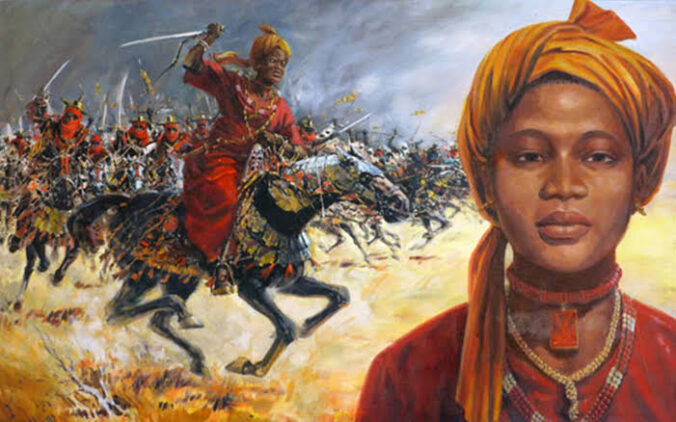Commonly known as the warrior queen, Queen Amina of Zaria was the first woman to become the Sarauniya (queen) in a male-dominated society. She expanded the territory of the Hausa people of West Africa to its largest borders in history. Much of what is known of Queen Amina is based on information related in the Kano Chronicles. Other details are pulled from the oral traditions of Nigeria. As a result, the memory of Queen Amina has assumed legendary proportions in her native Hausaland and beyond. The modern state of Nigeria has immortalized Amina by erecting a statue of her, spear in hand, on a horse, in the centre of Lagos. The context of Queen Amina’s leadership was pre-colonial Nigeria, where men did not feel threatened when women were in powerful positions, as it was usually understood that they deserved to be there because of age, kinship or merit, not gender. Women could even oust men who were not performing their duties effectively. While socially and economically, pre-colonial Nigerian societies clearly delineated women’s and men’s roles this did not preclude women from asserting their authority or themselves. Queen Amina undoubtedly managed to forge and imprint a legacy that contradicts all stereotypes of women’s leadership in patriarchal African societies, where the inequality that women face affects virtually all aspects of society. There is significant evidence that women were allowed to make ample contributions to the social, political and economic structure of their societies in pre-colonial Nigeria, if not with the same clout as men. Where they were prevented from being openly active, women used loopholes inherent in their social structures to gain and maintain some level of power. This changed to a large extent with the advent of Islam and, later, British colonial rule, causing women to suffer important setbacks The obstacles facing women in Nigeria and across Africa may persist, yet the legacies and examples of women such as Amina point to the possibilities that exist for African women to reshape the destinies of their societies and communities.
